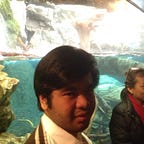How Classical Thought Molded My Intellectual Thinking
At this time and age, more and more people are now inclined to take up courses to prepare them to land a stable career. To put it simply, our generation considers that the career they choose today, should land them a job that pays a stable income and provides food on their table and roofs over their heads. As someone taking up a course in one of the humanistic disciplines, Spanish Philology, I have well pondered the slim chances of opportunities available outside of teaching and the dreadful hours in a cubicle, taking up calls and tirelessly trying to listen to complaints by callers, who preferred “native speaker”. However, people often forget that our modern society will not live up to its expectations, if not for these disciplines, especially those who are the very foundation of western society and culture.
Being from the Philippines, a westernized country found in Southeast Asia, largely thanks to the Spanish and American colonization. However, due to our flawed educational system, we’ve been taught to hate the Spaniards and the Americans and fostered a Filipino identity based on Tagalog. To reinforce the idea, the Komisyon ng Wikang Filipino decided to create a national language based on Tagalog, ignoring the fact that the country is linguistically and ethnically diverse. The said commission even disparaged the other 100 + languages as dialects! Due to this imposition of national identity, Filipinos have fostered a black and white view of their own history, thus simplifying complex socio-political and historical events that led to a culture of clinging to the past, blaming the colonial powers for the misfortune of the country. Unfortunately, this blaming culture, originated from Spain and nowhere else, always blaming the English and the Protestants for the fall of the Spanish Empire. As a Filipino who has a wider view of both worlds, and knows Spanish and being a Filipino, I have learned to be more scientific and academically accountable, since I have learned throughout these three years studying in Spain, that clinging so much to the glorious past does not help at all.
This change of heart occurred when I first had contact with Latin. I am a walking testimony that learning languages is the window of understanding other cultures, and through this learning process, I have gained another perspective, a more humanistic approach. It was translating the Roman authors like Catullus, Cicero and Horace, that gave me the opportunity to interpret Balagtas’ work, Florante at Laura, in a wider perspective without the nationalistic interpretation that was given to us in High School. Due to this attentive reading of his work, I have realized that the literary tradition of the Philippines is very diverse. We have it all; the indigenous narratives (not only in Tagalog, but also in other Philippine languages) before and during the Spanish colonization, Classical and Medieval tradition, both inherited from Spain, and the Anglo-American tradition inherited from the Americans. It was also through Latin that I discovered a Filipino writer who wrote in said language, by the name of Bartolomé Saguinsín. Going back to Florante at Laura, I could see all the compendium of traditions left by Spain, but the difference is that he did it in the vernacular language, thus, mirroring Dante Alighieri himself with the Italian language, during a time when Romance languages were considered vulgar and of the uneducated populace. This did not really surprise me at all, as the author, Francisco Balagtas studied Latin, Greek, Theology, and Philosophy, yes! He was trained under humanistic thought! But the difference is that he was able to elevate the Tagalog language and paved the way to more Tagalog authors in the centuries to come.
To conclude this article, I now see how Philippine culture is not only Hispanic, nor indigenous but rather, a very complex and diverse society with so many traditions and narratives. In my opinion, we should value this diversity as it is our key to mutual respect. Thanks to Classical thought through my Latin studies in the university, it has given me a wider and broader perspective of what it means to be Filipino; a Filipino who accepts sociocultural diversity, and this is what I think a Filipino should be: accepting and loving in spite of our differences, because our differences makes us unique as a nation and none other in the world.
